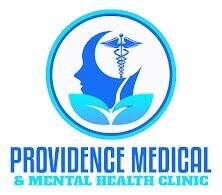PTSD Specialist

PTSD
Post-traumatic stress disorder (PTSD) affects people of all ages and from all walks of life who have experienced a threatening event. Dr. Esther Eke-Huber, PhD, APRN, ANP-C, PMHNP-BC, and the team at Providence Medical & Mental Health Clinic treat PTSD with compassionate support, therapy, and medications that help you overcome the anxiety, flashbacks, nightmares, and other symptoms caused by PTSD. To get expert care for PTSD, call the office in Houston, Texas, or book an in-person or telemedicine appointment online today.
What is PTSD?
PTSD occurs after you experience or witness an event that threatens or causes physical harm. You may also develop PTSD after a friend or family member tells you about their traumatic event, even if you weren’t there.
Though veterans who experienced combat duty often get PTSD, anyone can have this condition after experiencing traumas such as:
- Gun violence
- Robbery
- Fire
- Sexual assault
- Physical assault
- Car, airplane, or train accident
- Earthquakes, floods, or tornadoes
These events naturally cause fear, anxiety, and distress. If those feelings last a month or longer, you may have PTSD.
What are the symptoms of PTSD?
In children younger than six years, PTSD may cause bedwetting after toilet training. Young kids may also stop talking, become unusually clingy, or act out the scary event while playing.
PTSD symptoms in older children and teens include disruptive, disrespectful, or destructive behaviors. In this age group, they may have thoughts of revenge or feel guilty for not preventing the event.
When adults have PTSD, they experience four types of symptoms:
Re-experiencing symptoms
These symptoms include powerful thoughts and dreams that make you relive the traumatic event and cause significant distress. Intrusion symptoms include flashbacks, nightmares, and memories that invade your thoughts during the day.
Cognition and mood symptoms (negative thoughts)
People with PTSD often experience anxiety and depression. Some also have overwhelming guilt, shame, or fear. These thoughts affect the way you interact with others in your life, often causing you to become isolated.
Avoidance
Many people with PTSD avoid any person, place, or thing that reminds them of the traumatic event.
Arousal and reactivity
PTSD puts you on edge and makes you quick to get angry and lose your temper. You may get startled easily or become hypervigilant, always staying on alert for things that can trigger a flashback.
How is PTSD treated?
During your initial consultation, your Providence Medical & Mental Health Clinic provider learns what caused your PTSD, the symptoms you experience, and what triggers your symptoms. Then they develop a treatment plan that may include medication management and/or psychotherapy.
Though there currently isn’t any medication to treat PTSD, your provider may prescribe medications to ease certain symptoms such as depression, worry, and anger. You may also need medications to help with sleep problems.
Psychotherapy can help with many aspects of PTSD. Some types of therapy ease your anxiety by confronting your fears in a supportive environment. Therapy can also address any area of your life affected by PTSD, whether you want to learn how to manage guilt or need tips for rebuilding a social life.
You can overcome PTSD with treatment at Providence Medical & Mental Health Clinic. Call the office or book an appointment online today.
